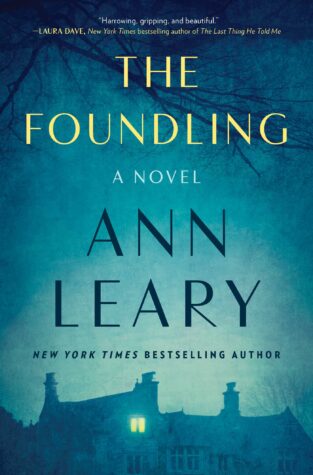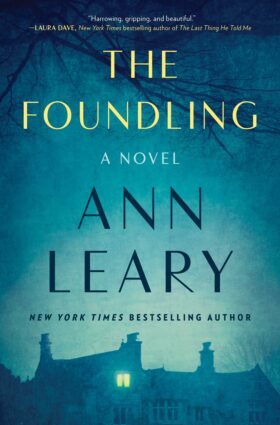
“I trust you’re familiar with the type of girl I’m referring to,” she tells the audience. “You’ve seen her slinking in and out of bawdy houses and illegal drinking establishments… she may seem normal enough—in fact, she’s often quite pretty. Until you see her again, a few years later, ruined and destitute, begging for handouts, surrounded by her own diseased and illegitimate children.”—Ann Leary, The Foundling.
So says Dr. Agnes Vogel, the administrator of the Nettleton State Village for Feebleminded Women of Childbearing Age. It’s 1927 and eighteen-year-old Mary Engle is hired to work as Dr. Vogel’s secretary at an institution for mentally disabled women. She’s immediately in awe of her employer—brilliant, genteel Dr. Agnes Vogel, who had been the only woman in her medical school class. Mary deeply admires how dedicated the doctor is to the poor and vulnerable women under her care.
Soon after she’s hired, Mary learns that a girl from her childhood orphanage is an inmate. Lillian begs her to help her escape and Mary faces a terrible choice. To whom should she be loyal: her childhood friend or her hero, Dr. Vogel?
The author’s grandmother, who worked at Laurelton State Village in central Pennsylvania inspired the Foundling. The concept was to detain, segregate, care for, and train feeble-minded women of childbearing age (between the ages of 16 and 45 years). They warehoused women regarded as problem daughters, troublesome wives, and unwed mothers.
It’s hard to imagine women were institutionalized for being “feebleminded.” What does that even mean? Besides abnormal behavior and very low scores on IQ tests, “feeblemindedness” was frequently linked to promiscuity, criminality, and social dependency. They deemed some women to have moral feeblemindedness because they defied social norms or their husbands and were involuntarily held in mental alyssums until they were no longer of childbearing age.
I read historical novels to learn something about the past. The Foundling taught me about eugenics, women’s suffrage, prohibition, and the powerlessness women experienced in the first part of the 20th Century.
The writing is authentic, the characters well drawn, and the book really opened my eyes to an ugly chapter of American history. I supplemented the book with audio but didn’t care for the narration. The Foundling is suspenseful, sometimes thrilling, and has a great ending. 4 stars.
Published Date: May 2022
Genre: Historical fiction
Read-alikes: The Mad Girls of New York by Maya Rodale; The Mad Women’s Ball by Victoria Mas; The Girls with No Names by Serena Burdick.
** Thanks to NetGalley and the publisher for a complementary copy of this book. The opinions expressed are my own.
